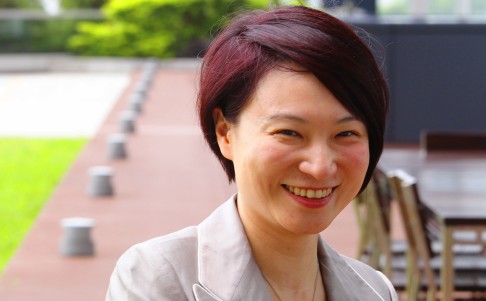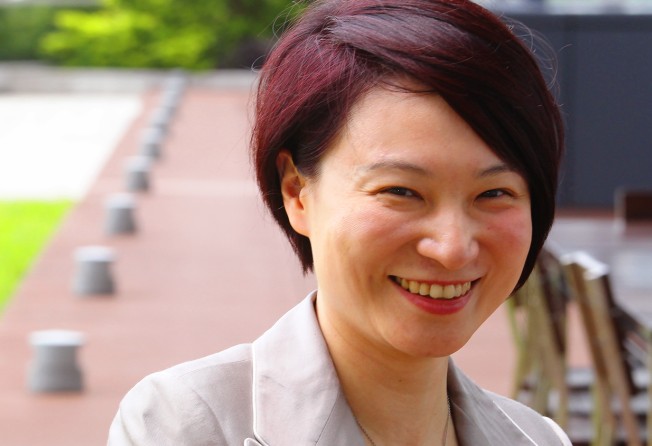
DAB leader Starry Lee says party could put up its own chief executive election candidate in future
First-ever chairwoman of city's biggest political party, Starry Lee Wai-king, says it must groom talent to create potential election candidates


Starry Lee Wai-king was recently elected leader of the Beijing-loyalist Democratic Alliance for the Betterment and Progress of Hong Kong - the first chairwoman in its 22-year history.
Last Wednesday, the government unveiled its final package of proposals for electing a new chief executive by popular ballot in 2017, but it is unlikely to be approved in the Legislative Council as 27 pan-democrat lawmakers have vowed to vote it down.
Executive councillor and lawmaker Lee, 41, believes that even if the proposal is rejected, Hong Kong will one day achieve universal suffrage, when parties such as the DAB would "play a much bigger role" in the city's politics and governance.
"Is there going to be a ruling party like what we see in the West? I think maybe not, because we have a different political system, but our level of participation will certainly be bigger," Lee said.
"We need different types of talent because, as a political party, the DAB's goal is that one day … we will be taking part in the chief executive election."
Lee suggested that her predecessors Jasper Tsang Yok-sing and Tam Yiu-chung "could be candidates" for the chief executive in 2017, should they put themselves forward. But Lee herself, Tsang and Tam have all dropped strong hints that they would not consider running.
Any chief executive-elect must also declare that they do not belong to a political party.
On her plan to nurture political talent, Lee said that apart from councillors and political appointees, she would also like her party to have more propaganda specialists, election campaigners and policy researchers.
And to strengthen policy studies, the DAB would also seek more cooperation opportunities with external think tanks such as university institutions in Hong Kong and Guangdong.
In February, Tam conceded the DAB had encountered "difficulties" in recruiting young people, as well as members from the commercial and professional sectors, meeting only half its target after 10 months into a year-long programme.
Lee said: "Our general direction is still to attract supporters and volunteers from groups including the middle class, professionals and the young, but we can rethink whether the membership numbers should be used as a benchmark" because those who support the DAB might be reluctant to join any political group.
She also appeared reluctant to say whether she would follow Tam's footsteps in taking up the leading role among the 47 pro-establishment lawmakers.
"Tam was honoured to be regarded as the camp's leader, and there are many things to learn from him … but I'm not worried about [not being taken seriously by other pro-establishment lawmakers] because it really takes everyone's effort to form an alliance naturally," Lee said.